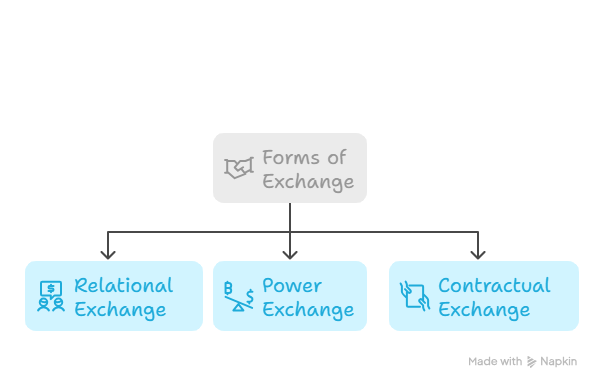Procurement of services
Business
- Business, at its core, is a form of exchange, a practice as ancient as human society itself.
- As social beings with specialized skills, we rely on each other to fulfill our diverse needs. This necessitates the exchange of goods and services, giving rise to the concept of business.
- Initially, this exchange likely took the form of barter, a direct trade of goods.
- The invention of money significantly streamlined this process, acting as an intermediary for transactions. Throughout history, wherever civilizations have flourished, so too has business.
Exchange
Imagine that you are a producer in need for a service, which you do not directly produce. You can procure this service, in three distinct ways.
- One, you ask a friend or a relative who has some expertise in this area to do this service for you.
- Two, especially if you are rich, you can acquire a firm that specializes in these services.
- Three, you can get into a contract with an arm’s length service provider, who will provide you the service of a specific quality and price. How do you choose between these three modes?
Understanding the different ways of conducting business is crucial. One useful classification, categorizes business exchange into three distinct forms from the perspective of a producer seeking a good or service they don't directly produce:

1. Relational Exchange
Description: Relational exchange involves procuring goods or services from individuals within your existing network of relationships, such as friends, relatives, or acquaintances. This form of exchange is characterized by trust, familiarity, and often implicit understandings based on the social connection between the parties involved.
2. Power-Based (Hierarchical) Exchange
Description: Power-based or hierarchical exchange involves bringing the capability to produce the needed good or service within your own organizational structure.
3. Contractual Exchange
Description: Contractual exchange, prevalent in the modern business world, involves sourcing goods or services from external providers through formal agreements or contracts. These exchanges typically occur at "arm's length," meaning the parties involved may not have any pre-existing personal relationships.
